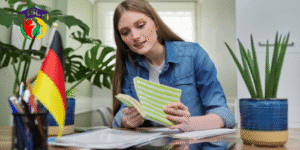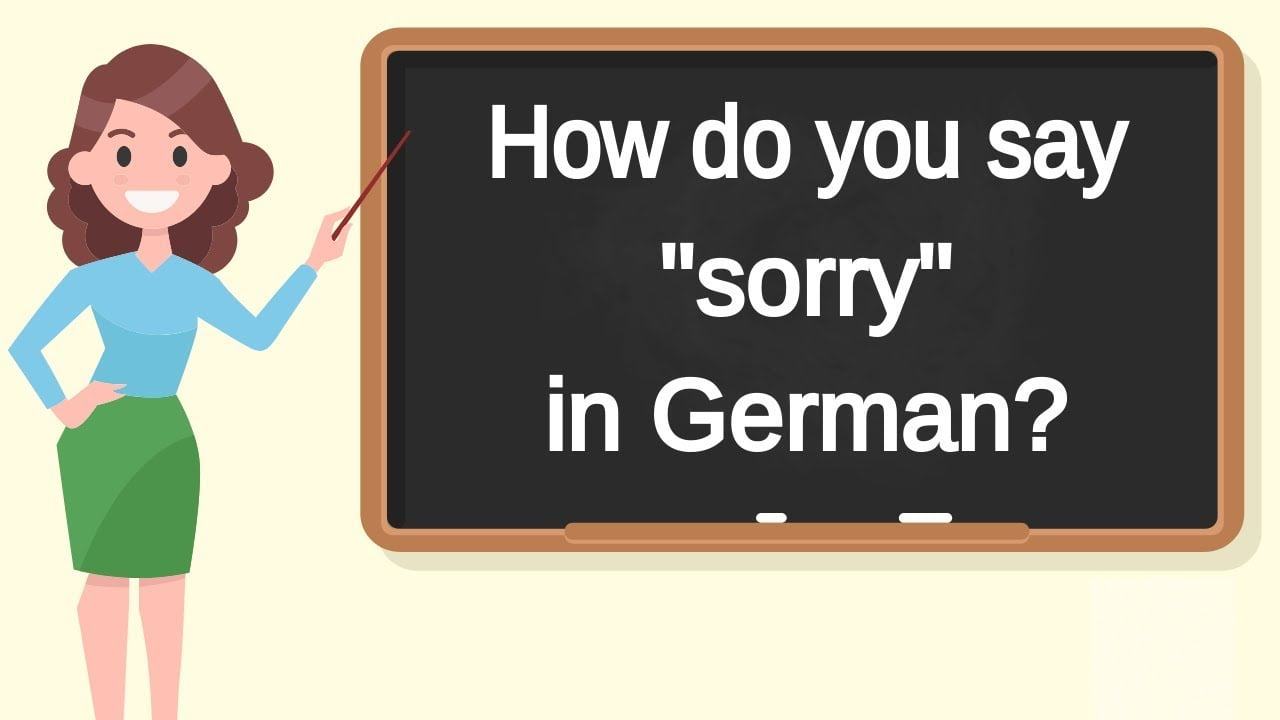Learning to apologize in any language is vital, especially when navigating new cultures. German is no exception. Whether you’re traveling to Germany, interacting with German-speaking colleagues, or simply practicing the language, knowing how to say “sorry” correctly will go a long way in improving communication and showing politeness.
In this comprehensive guide, we will explore various ways to apologize in German and explain the context in which each phrase should be used. From informal expressions to formal apologies, you’ll learn the best ways to say “sorry” in German as a beginner.
1. Entschuldigung – The Most Common Way to Say “Sorry”
- Pronunciation: en-tshool-dee-goong
- Translation: “Excuse me” or “Sorry”
Entschuldigung is the most commonly used word for “sorry” in German. It’s a versatile phrase that can be used in many contexts:
- When you bump into someone accidentally.
- When you need to get someone’s attention.
- When you want to apologize for a minor mistake.
Example:
- Entschuldigung, ich habe dich nicht gesehen!
(Sorry, I didn’t see you!)
This phrase can be formal or informal depending on the situation and is ideal for beginners because it’s straightforward and polite.
2. Es tut mir leid – “I’m Sorry” (More Sincere Apology)
- Pronunciation: es toot meer light
- Translation: “I’m sorry”
Es tut mir leid is a slightly stronger apology than Entschuldigung and expresses sincere regret. It’s the German equivalent of saying, “I’m sorry” in English and is used when you’ve done something wrong that affects another person.
Example:
- Es tut mir leid, dass ich zu spät bin.
(I’m sorry that I am late.)
Use this phrase when you want to express more genuine or personal remorse.
3. Verzeihung – A More Formal Apology
- Pronunciation: fer-tsai-hoong
- Translation: “Pardon” or “Forgive me”
Verzeihung is a more formal way to apologize, though it is not as commonly used in everyday conversation as Entschuldigung or Es tut mir leid. You would typically hear this in more formal settings or in written German.
Example:
- Verzeihung, das war mein Fehler.
(Forgive me, that was my mistake.)
This phrase might be used when addressing someone of higher authority or in formal letters.
4. Ich entschuldige mich – “I Apologize”
- Pronunciation: eekh en-tshool-dee-guh mikh
- Translation: “I apologize”
Ich entschuldige mich is a formal way to say “I apologize.” It is used when you need to express a more official or profound apology, like in professional settings or important conversations.
Example:
- Ich entschuldige mich für mein Verhalten.
(I apologize for my behavior.)
This phrase should be reserved for situations where a deeper level of apology is required.
5. Das tut mir leid – “That Makes Me Sorry”
- Pronunciation: das toot meer light
- Translation: “That makes me sorry”
Das tut mir leid is similar to Es tut mir leid, but it emphasizes the specific event that caused you to feel sorry. It can be a more heartfelt apology, especially when you’re addressing someone’s bad news or unfortunate event.
Example:
- Das tut mir leid, dass du das erleben musstest.
(I’m sorry that you had to experience that.)
This phrase can also express empathy or sympathy in addition to regret.
6. Sorry – An Informal Apology in German
- Pronunciation: sore-ree
- Translation: “Sorry”
Interestingly, the English word sorry has been adopted in German and is used in informal situations, especially among younger people or in casual conversations.
Example:
- Sorry, das war keine Absicht!
(Sorry, that wasn’t intentional!)
It’s an easy word for English speakers to use, but it’s important to remember that it’s very informal and shouldn’t be used in formal or serious contexts.
7. Entschuldige bitte – A Polite and Friendly Apology
- Pronunciation: en-tshool-dee-guh bit-tuh
- Translation: “Excuse me, please”
Entschuldige bitte is a polite and slightly friendlier way of saying “sorry.” It softens the apology with a request for understanding and is often used when you politely seek someone’s forgiveness.
Example:
- Entschuldige bitte, ich war unhöflich.
(Excuse me, please, I was rude.)
This phrase can be used when you need to be particularly courteous.
8. Ich bedauere – “I Regret”
- Pronunciation: eekh beh-dow-er-uh
- Translation: “I regret”
Ich bedauere is a formal way of expressing regret, similar to the English phrase “I regret.” This is used when addressing formal situations where you deeply regret an action or event.
Example:
- Ich bedauere das Missverständnis.
(I regret the misunderstanding.)
It’s more formal and less frequently used in everyday conversation.
9. Kein Problem – Responding to an Apology
- Pronunciation: kine proh-blem
- Translation: “No problem” or “That’s okay”
If someone apologizes to you, it’s useful to know how to respond. Kein Problem is the equivalent of saying “No problem” in English. It’s a polite and reassuring way to let the other person know that you accept their apology.
Example:
- Entschuldigung!
Kein Problem!
(Sorry!)
(No problem!)
It’s informal, friendly, and commonly used in response to minor apologies.
10. Schon gut – “It’s Okay”
- Pronunciation: shohn goot
- Translation: “It’s okay” or “It’s all good”
Schon gut is another way to respond when someone apologizes. It’s similar to Kein Problem and is used to reassure the other person that everything is fine.
Example:
- Es tut mir leid!
Schon gut!
(I’m sorry!)
(It’s okay!)
This phrase is more informal and best used in casual situations.
Practical Tips for Apologizing in German
- Context Matters: Choose your apology based on the formality of the situation. For casual interactions, use Entschuldigung or Sorry. For more formal situations, go with Es tut mir leid or Ich entschuldige mich.
- Tone and Body Language: In Germany, being straightforward and sincere is highly valued. Ensure that your tone and body language reflect genuine regret, especially in more serious situations.
- Responding to Apologies: Learning how to respond when someone apologizes to you is equally important. Simple phrases like Kein Problem and Schon gut show politeness and understanding.
Conclusion
Learning to apologize in German is essential for smooth communication, whether you’re visiting Germany or interacting with German speakers. From casual phrases like Entschuldigung to more formal ones like Ich entschuldige mich, there’s a wide range of ways to say “sorry” based on the context.
Practice these phrases in your daily conversations, and soon you’ll feel more comfortable and confident when navigating apologies in German. As with any language, showing respect and sincerity through your words will help build positive relationships and avoid misunderstandings.
Remember, the key to mastering apologies is understanding the nuances of each phrase. So, the next time you find yourself in a situation where you need to apologize in German, you’ll be well-prepared!
- Learn German in Dwarka, Delhi – Beginner to Advanced

- How to Prepare for German Language Interviews & Spoken Tests in 2026

- How German Language Skills Can Boost Your Study Abroad Dreams in 2026

- Best English Language Course in Dwarka for Students and Professionals

- German Language Course in Dwarka | Proven Career Benefits in 2026

- French Language Course in Dwarka | Essential Reasons to Learn French in 2026


